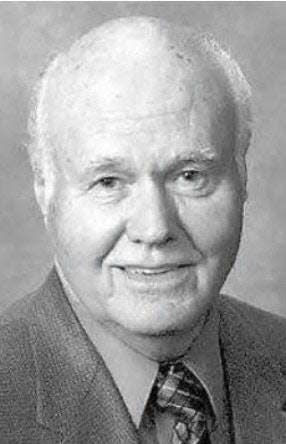Fowler commentary: Those were the days
So this is April, the month of rains. But where are the rains with their spring flowers? A friend tells me that South Texas is covered with bluebonnets. Where are our little yellow flowers that usually come this time of year? Oh well! I will not question Mother Nature. She has her own schedule.
Maybe the flowers will come with the monsoon in a month or so. Or maybe not!
Jon Mark Beilue used to fool us on April Fool’s Day until we caught on to his clever use of the language. We finally wised up to his columns that made fools of us all. This is also the month of Black Sunday, April 14, 1935. My widowed mother taught school at Rhea, a small community west of Friona, Texas. The community is still there, but not the schoolhouse. We lived in a small house adjacent to the school building. Another teacher, who, coincidently, was named Fowler as well and was a divorcee lived in the house with us. She had two children.

On that Sunday I was looking out the north window (we had only one) and saw one of the most frightening scenes I have ever witnessed, then and now. My four-year-old eyes saw a wall of sand rolling across the prairie, heading directly toward us. This was the era of the Dustbowl as well as The Great Depression and I was certain that it was also the end of the world, even though I knew very little about the end of the world as depicted in the Bible.
I can best describe the scene as that of a giant steam roller; the sand was literally rolling toward us, not blowing toward us. I could see blue sky above the rolling sand before it hit, which I now estimate as being approimately300 feet high. The blue sky was the only thing I could cling to as being proof that it wasn’t really the end of the world, although this assurance came later. At the time I could only stand in front of the north window and await my fate. I couldn’t be responsible for the rest of the world. The rolling sand hit the house which had little if any insulation and immediately turned the inside black. My mother and the other woman were busy soaking sheets to spread across the windows in a futile attempt to keep the sand out. Wet sheets didn’t work. We were all choking and spitting, truly spitting, dirt until the sandstorm rolled on south to suffocate others.
Then came the cleanup, mostly by the women since the two other kids and I were all about the same age and could do little. I can remember very little of the cleanup. I walked outside once the wind had subsided, walked to the north side of the house. All of the dirt which had covered the foundation was gone. The stucco which enveloped the house was more brown than before. My toy car, if I had had one, would be enjoyed by another little kid in Abilene, even though, at the time I had never heard of Abilene. Truth is, I never had a toy car. My mother could not afford one. My play-like car was a chunk of iron and my imagination, something today’s kids, I’m afraid, don’t have. Their imagination is controlled by social media. So much for American ingenuity, a valuable trait that built America into what it once was — the “Greatest Country on Earth.”
This was early in the administration of FDR, who, I later learned, was a socialist (trying to pack the Supreme Court, etc.), but he did create two programs that alleviated to a degree the most trying time of the greatest of trying time —the CCC (Civilian Conservation Corp.) and the WPA (Works Progress Administration). The Visitor Center/Canyon Gallery in Palo Duro Canyon has a small, excellent museum commemorating the CCC, the program that created the state park. These two programs lost their usefulness with the advent of World War II, and the social programs had to be put on hold until its end. But the always persistent Marxists in the government simply took up where FDR left off — the destruction of American democracy represented today by Joe Biden.
Anyway, the sandstorms kept coming, but none so large as the one on Black Sunday. My uncle took me to a circus in Clovis, New Mexico, afterward to see beasts I had seen only in picture books. He had little money, but the circus was cheap. His old car, old even in 1935, had to be started with a hand crank; but, thank goodness, it had a hole in the floorboard that served as a place to relieve myself.
Yes, those were the days. NOT!
Carl Fowler is a retired professor of English at Amarillo College and lives in Amarillo.
This article originally appeared on Amarillo Globe-News: Fowler commentary: Those were the days
